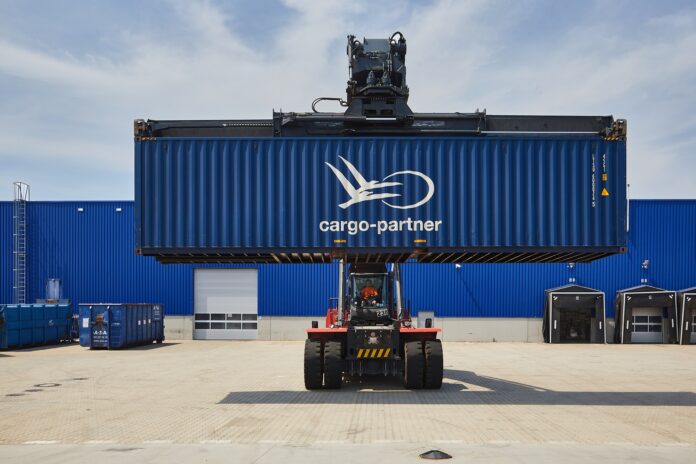Besides offering rail transport solutions between Asia and Europe, the international transport and logistics provider cargo-partner now extends intermodal services to and from various European countries, including Türkiye, the United Kingdom and Ireland.
Responding to the persistent truck driver shortage and frequent road congestion at European borders, cargo-partner has introduced a comprehensive range of intermodal transport solutions across a broad network of European Union (EU) and non-EU countries.
cargo-partner’s intermodal transport solutions utilize 45 ft pallet-wide containers and 13.6 m tilt trailers, leveraging rail for the primary transit leg to ensure goods movement without transloading between transport modes.
This approach cuts costs and reduces environmental impact, potentially saving up to 80% in CO₂ emissions compared to traditional trucking solutions, according to cargo-partner’s announcement.
“The efficiency and reliability of intermodal logistics make it an ideal choice for various industries. Industries such as fashion, electronics, automotive, and general industrial goods benefit significantly from its cost-effectiveness and reduced environmental footprint,” stated Vladislav Kovačovský, Corporate Product Manager Intermodal at cargo-partner.
The necessity for such innovative solutions is highlighted by current logistical challenges, exemplified by recent truck queues at the Hamzabeyli/Kapetan Andreevo border between Türkiye and Bulgaria, noted cargo-partner, adding that these delays underscore the urgency for alternative transport methods to alleviate escalating congestion and border crossing issues.
Furthermore, cargo-partner’s array of intermodal services offers flexible routing options with frequent departures to and from Austria, the Czech Republic, Hungary, Poland, Romania, Slovakia, Slovenia, Türkiye, as well as Germany, Belgium, and the Netherlands. Additionally, Belgium and the Netherlands serve as gateways for extending transport services to the United Kingdom and Ireland.
“Our integrated approach combines road and rail transport, delivering a sustainable alternative that reduces road congestion and ensures smooth transport processes,” pointed out Vladislav Kovačovský.







